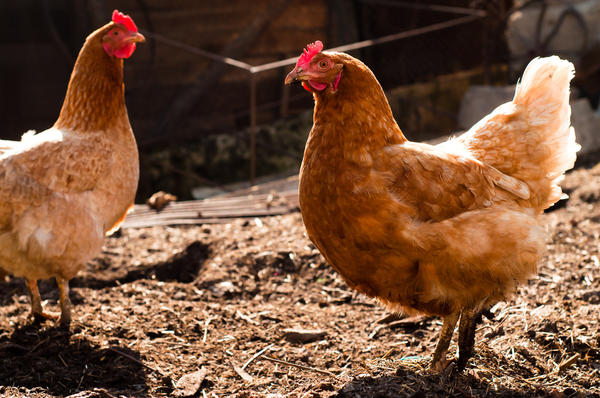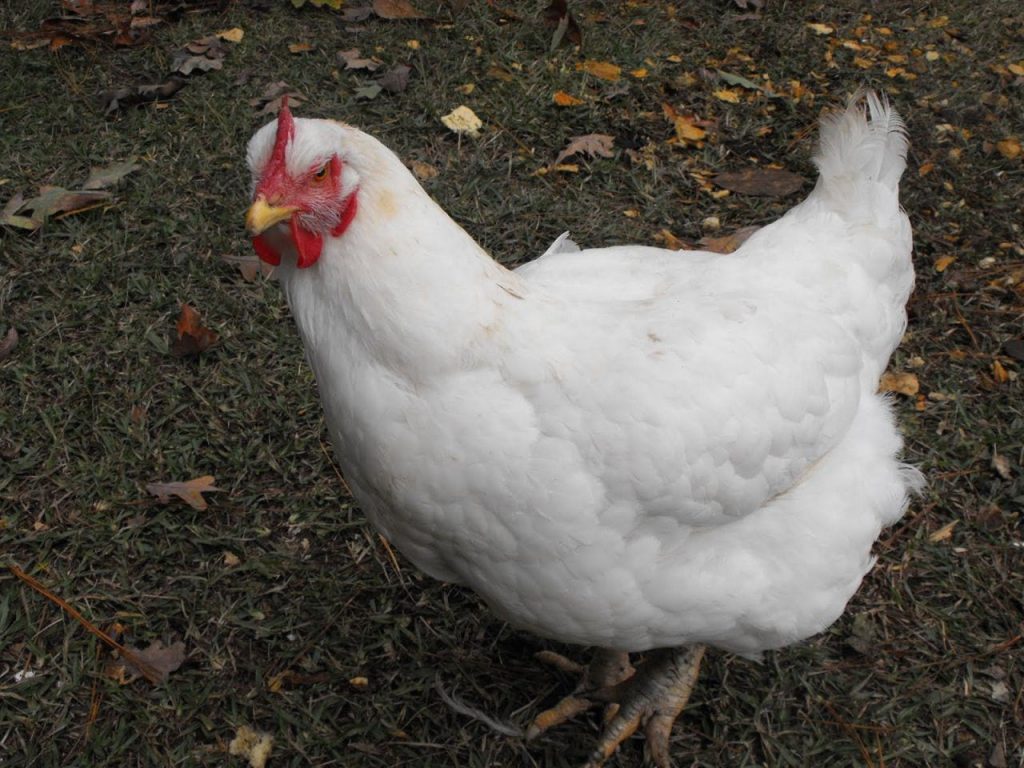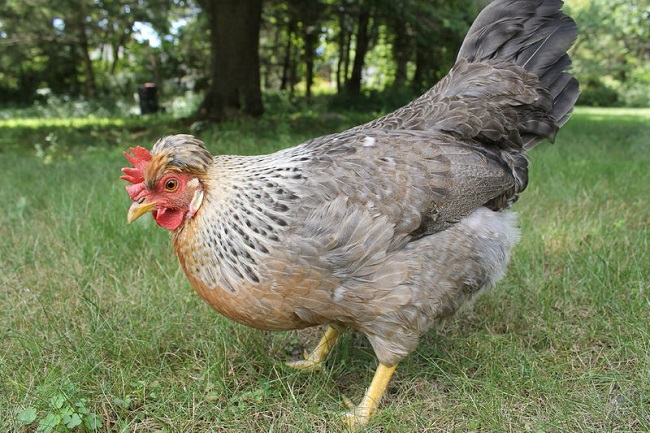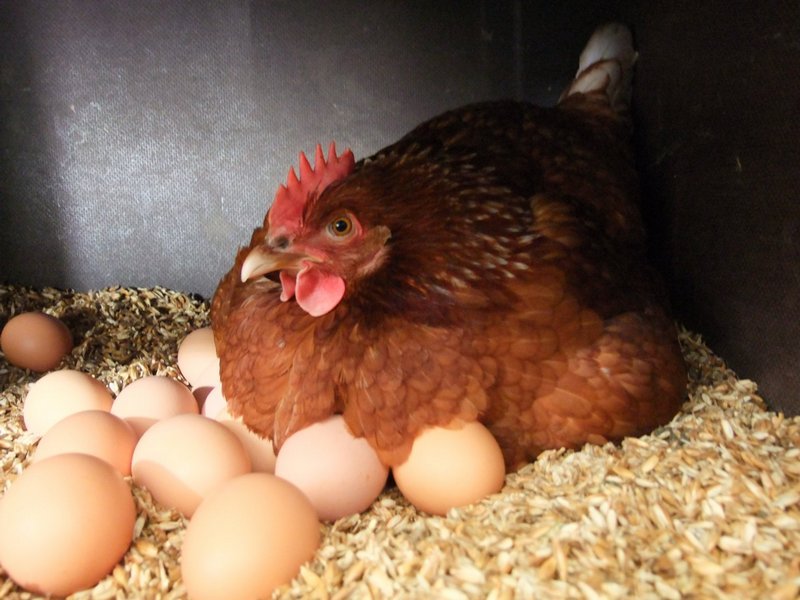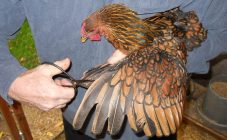Content:
At a certain time, every poultry breeder begins to think about introducing new breeds or updating the livestock. It is in such a situation that it is worth paying attention to the fact that the hierarchy of birds in closed groups is exactly the same as in other animals. Therefore, such a process should be approached responsibly and competently.
Home care rules
Despite the fact that chickens are considered unpretentious animals, this should not be neglected - they, like everyone else, require care and attention. In order to have fresh food on your table all year round, you need to provide the birds with the following conditions:
- Cleanliness of the room - in order to eliminate moisture and prevent the appearance of a strong odor from droppings, the bird needs to build a flooring of lime and hay, which must be changed at least once a week. In order to prevent insects from growing in the feathers of animals, experienced poultry farmers recommend scattering piles of ash in places where birds are kept.
- The required amount of light - this issue is especially relevant in the winter period of time, since during this period of time the daylight hours are much shorter. It is best to give preference to warm light. If the animals are not provided with this condition, they can completely stop rushing, begin to behave aggressively and beat each other.
- Heat - in the cold season, the temperature should not be lower than 15 degrees.
- Separate Feeders - Some birds may be overly aggressive and keep other chickens away from feed, especially young chickens, which may even peck at each other.
- Providing chickens with food constantly - it is strictly forbidden to allow the emptying of chicken feeders, since the digestive system of these animals requires constant feed.
- Freedom - chickens must have constant access to the street, even if the chicken coop is spacious.
Among other things, don't forget about nests and nests. It is also imperative to wash the bowls after each feeding, so you can avoid the development of a disease such as pip. Only by observing all these fairly simple rules can you provide your pets with a comfortable existence, as well as protect their health.
How to add new chickens to old ones
As practice shows, the replanting of new individuals is considered a very crucial moment, which must be approached correctly. Despite the fact that chickens are considered to be unpretentious inhabitants, they can still cause a lot of trouble. First of all, problems can arise in the fact that they can peck at their relatives, this happens most often during the planting of young animals, molting or in the winter period.
The aggressive behavior of birds is explained by the following reasons:
- Lack of free space - if it becomes cramped for the inhabitants of the chicken coop, then this is a reason to aggressively treat the young and not let them pass. In order to prevent unpleasant consequences, it is necessary to take into account when building a chicken coop that the birds will feel comfortable from the calculation if no more than 4 birds are kept on one square meter.As for the space in the feeder, for each chicken, about 10 centimeters should be allocated in length, and at least 20 centimeters on the perch.
- The incompatibility of young and old breeds - this reason must be taken into account before connecting chickens, pullets with old ones.
- Excess light - if it is very light in the hen house, then in this case the birds begin to get nervous and, as a result, peck at each other. This concerns, first of all, the winter period, when the hen house is illuminated with artificial lighting. If the length of daylight hours in animals differs from day to day, then this situation provokes animals to certain and inappropriate actions. Among other things, bright lighting shines through the blood vessels of birds through which blood moves, and when they see blood, birds begin to behave aggressively.
- Air humidity - the climatic situation in the hen house plays a huge role. Very often, the reason for the aggressive behavior of birds is the abnormal humidity in the chicken coop. For example, if the air is too dry, then the inhabitants, in order to avoid the fragility of the feather cover, begin to press on the gland with their beak to release secretions. The result is damage to the skin and the appearance of blood, which provokes aggressive behavior, which leads to fighting and pecking at the body of animals. In order to normalize the situation, it is necessary to maintain optimal humidity in the chicken coop, which varies from 60 to 70%.
- Malnutrition - especially when animals lack protein, because a rational and balanced diet is the key to good health, stable and adequate behavior, as well as high egg production. In order to provide animals with proper nutrition, it is imperative to include vegetables, herbs, whole and ground grains, vitamins, minerals and various additives in the diet. It is recommended to feed the animals at strictly allotted hours. In this case, only a slight deviation from the schedule is allowed. It should also be borne in mind that in the cold season, the frequency of feeding must necessarily increase.
As practice shows, in order to avoid unpleasant and sometimes irreparable consequences, it is best to take care of preventing fights and the appearance of blood - it greatly excites the birds.
First of all, before adding young chickens to old ones, so as not to fight, you need to provide animals with free space in the chicken coop, adhere to the correct planting and monitor their diet.
The best time to plant birds is evening. This is due to the fact that in the dark, animals do not see anything and that is why they are inactive. In order to get used to each other, the animals have a whole night at their disposal. That is why experts in this field recommend that before planting chickens in a chicken coop with other chickens, take this into account.
Before you add new chickens to old ones, you must observe the following rules:
- get a rooster, if you already have one, then it is best to replace the old one with a young one;
- it will take a few days for the rooster to get used to the new birds, after which the final replanting of old chickens can be carried out.
Observing these simple rules, it will be possible to avoid unpleasant situations and fights, since the rooster will be able to accept new inhabitants and after that will not give them offense. Another option for replanting is the method of planting individuals one bird at a time.
What to do if old chickens peck young ones
Each chicken coop is different in that its inhabitants are always divided into two groups. One includes strong individuals, the second - only weak ones. There are situations when stronger birds demonstrate their superiority to everyone around them, even if the chickens have been adjacent to each other for quite some time.But most often fights and conflicts arise when new individuals appear in the chicken coop.
Often such quarrels and collisions lead to the fact that chickens are damaged, and the egg production of chickens is significantly reduced. Fights and various conflicts most often provoke stress among others, which negatively affects the condition of the birds. Therefore, every chicken owner should definitely know how to avoid problems in the feathered herd.
Before planting new chickens with old ones for permanent residence, if there are fights, it is required to stop the enmity. Such collisions negatively affect not only the health and well-being of chickens, but also their ability to lay eggs, since in such situations the birds experience severe stress.
For this, there are some folk methods that will help avoid unpleasant consequences and establish peace in the chicken coop. They are as follows:
- All chickens, without exception, need to be watered with a triple cologne, after which the rooster will consider all the chickens its own and will not allow them to start pecking at each other;
- In some cases, the most cocky animals were dyed bloody tail, which led to the fact that the birds pacified them in a crowd.
The above tips will help in the process of keeping birds, because sometimes fights among them lead to sad consequences, such that some birds peck others to death.
In the event that, during replanting, animals peck up young animals for more than three days, the situation requires close attention. After all, the longer the enmity turns out, the more difficult it will be to establish peace and save young individuals.
